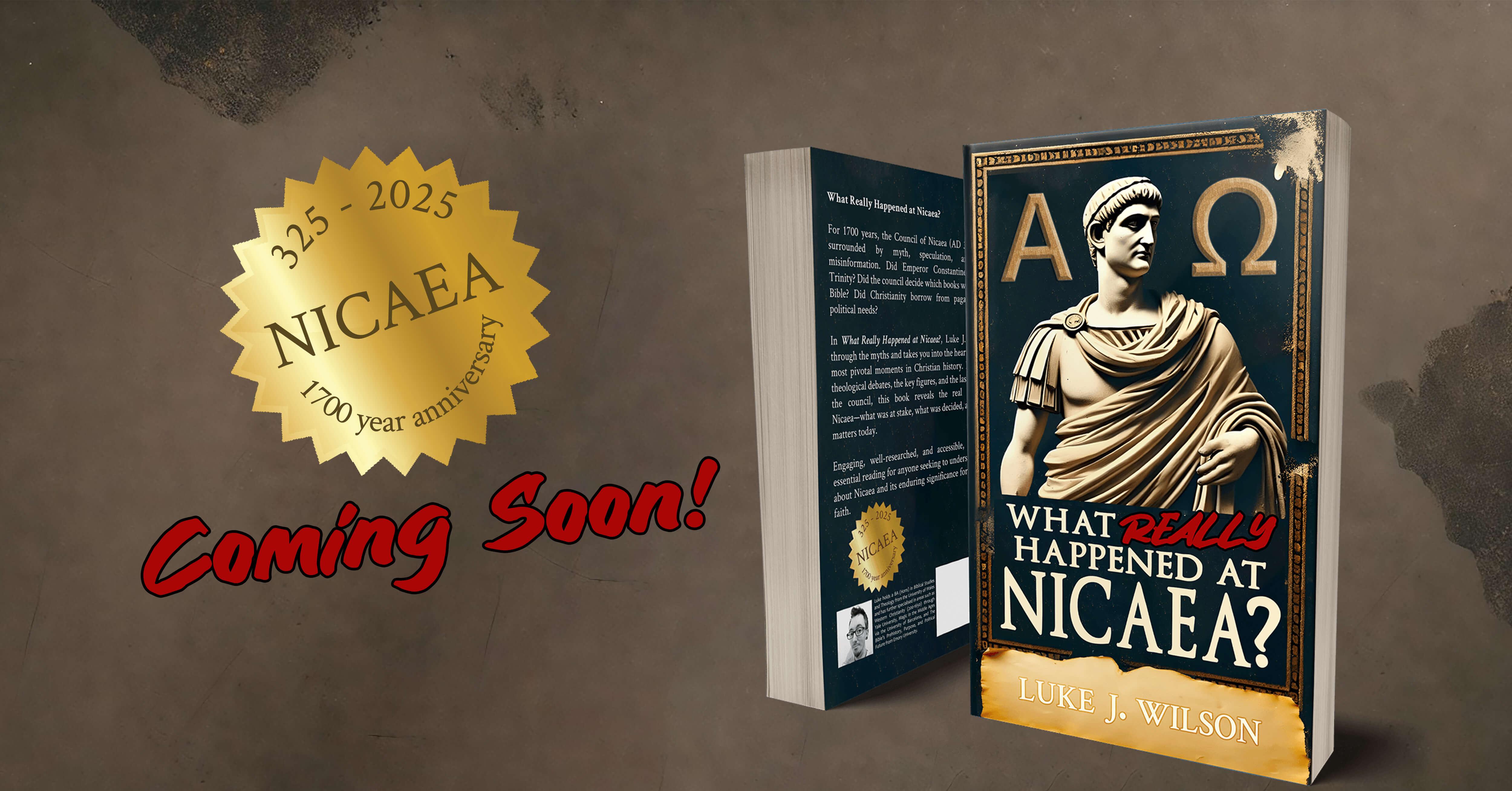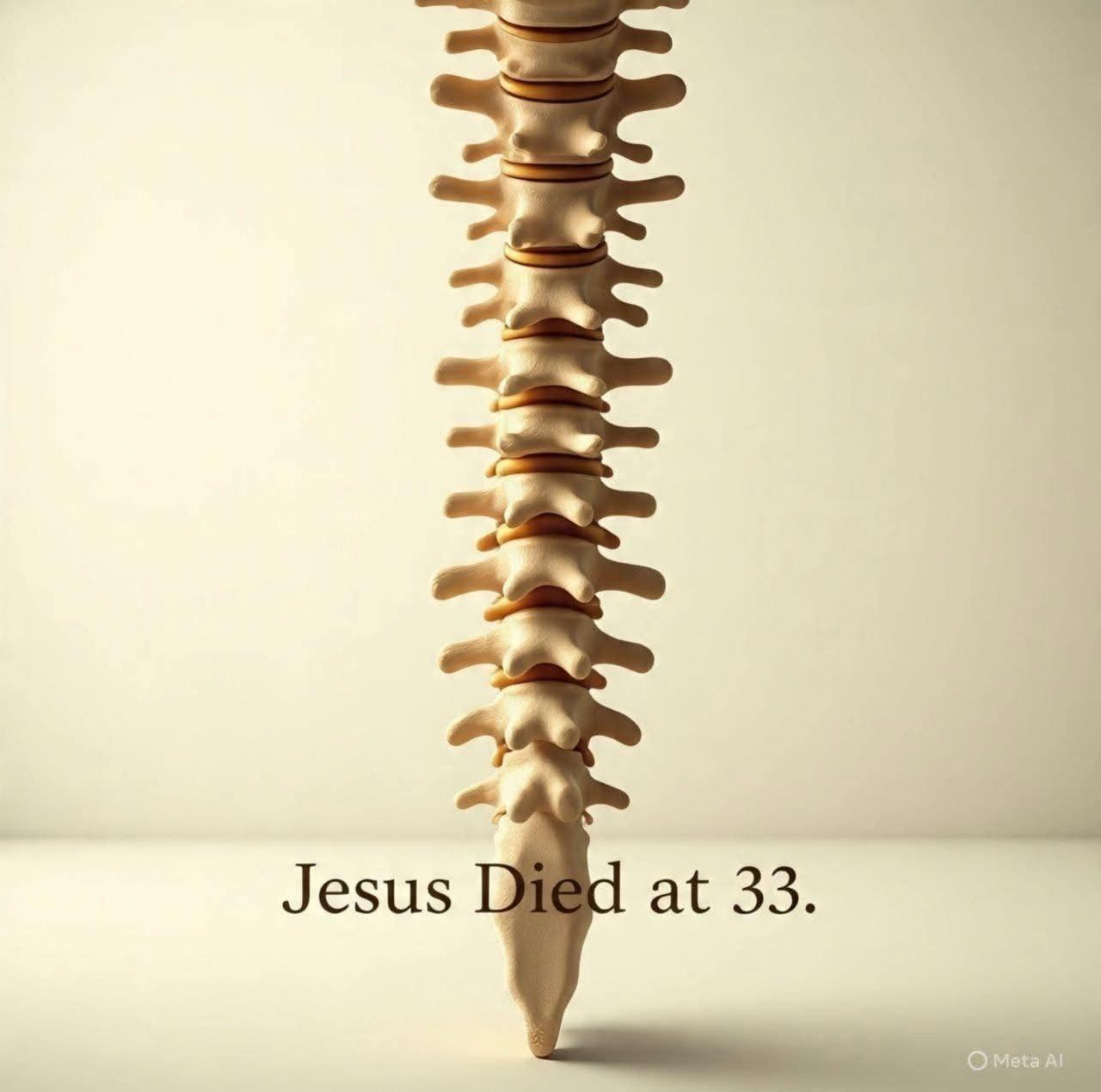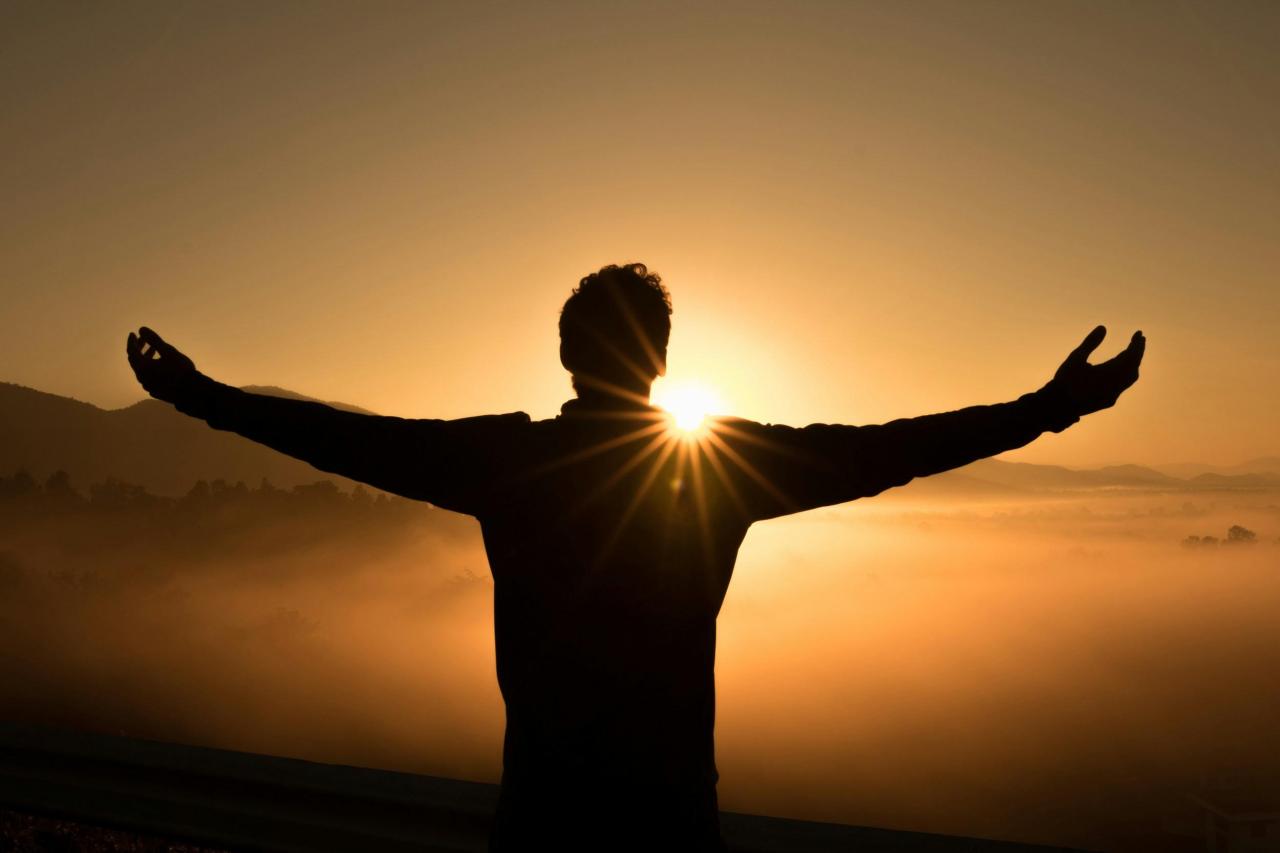Spiritual Disciplines of the Early Church: Ancient Practices for the 21st Century

I was asked not so long ago what kinds of things Christians did in the Early Church (first to fourth century) as a form of spiritual discipline, on a personal level as well as a corporate one. Though the concept of an individual “personal spiritual life” would have been quite foreign to first century believers as faith and Church was very much a corporate venture that had personal implications, rather than the other way around as it can often appear to be thought of today.
Much of what made Christianity structured, disciplined and set apart from society, has largely been lost in practice, or forgotten and relegated to the annals of history by many practicing Christians today.
With that said, let’s take a look at what the most common practices were of the ancient Church.
Reading/Memorising Scripture
-
Memorising Scripture – specifically the Psalms and Gospels
-
Singing/praying the Psalms as worship to God
Both of these principles are based on Psalm 1:1–3 and Colossians 3:16.
“Every Psalm brings peace, soothes the internal conflicts, calms the rough waves of evil thoughts, dissolves anger, corrects and moderates profligacy.” Commentary on Psalm 1, Basil the Great (4th century)
Prayer and Fasting
Another common practice that was expected of believers was regular fasting, since Jesus had said “when you fast”, not “if”.
Typically, fasting was done every week on Wednesday and Friday, based on Matthew 6:16–18, and also to honour the days of the Passion and crucifixion in later tradition.
“But let not your fasts be with the hypocrites; … but fast on the fourth day (Wednesday) and the Preparation (Friday). … [But pray] as the Lord commanded in His Gospel (the Lord’s Prayer) … Thrice in the day thus pray.”
Didache (c. 50 – 70)
Alongside fasting, praying the Lord’s Prayer three times a day (morning, noon, evening) was a common discipline. From around the third century, liturgy and prayers in a church service would start to face East as that was seen where God’s glory arose, and in baptism ritual turning East was a sign of turning away from the devil towards Christ (Jews similarly prayed facing Jerusalem). This is also why many old church buildings are cross-shaped and have the alter end pointing Eastward.
For it is required that you pray toward the east, as knowing that which is written: ‘Give ye glory to God, who rideth upon the heaven of heavens toward the east’ (Ps 67.34 LXX [Ps. 68:33 – 34]).
Didascalia, Ch. XII (c.250)
The various spiritual benefits to fasting are marked throughout the Church Fathers' works on the subject, but I find this quote from Augustine sums it up succinctly:
“Fasting cleanses the soul, raises the mind, subjects one’s flesh to the spirit, renders the heart contrite and humble, scatters the clouds of concupiscence, quenches the fire of lust, and kindles the true light of chastity. Enter again into yourself.”
Augustine; Sermon, On Prayer and Fasting, LXXII (c. 393–430)
Fasting was also not just total denial of food all day, but often only until sundown (or evening meal), and would comprise of bread and water with some oils to dip the bread in. Some may be more like a vegetarian diet, but with no oil, fish or alcohol either. Meal times should be replaced with prayer, and in all times during the fast (as well as generally also), to bear in mind the true fast that is pleasing to the Lord as seen in Isaiah 58:6–9.
“Isn’t this the fast that I have chosen: to release the bonds of wickedness, to undo the straps of the yoke, to let the oppressed go free, and that you break every yoke? Isn’t it to distribute your bread to the hungry, and that you bring the poor who are cast out to your house? When you see the naked, that you cover him; and that you not hide yourself from your own flesh?”
Isaiah 58:6 – 7 (WEB)
Signing the Cross
Another ancient custom is making the sign of the cross over yourself before you pray (well, before doing anything really!).
“In all our travels and movements, in all our coming in and going out, in putting on our shoes, at the bath, at the table, in lighting our candles, in lying down, in sitting down, whatever employment occupies us, we mark our foreheads with the sign of the cross”
Tertullian (c. 250)
“Let us then not be ashamed to confess the Crucified. Be the cross our seal, made with boldness by our fingers on our brow and in everything; over the bread we eat and the cups we drink, in our comings and in our goings out; before our sleep, when we lie down and when we awake; when we are traveling, and when we are at rest”
Cyril of Jerusalem (c. 386)
Later monks, such as Anthony the Great, would also teach and use the sign of the cross for protection from demons and as part of performing exorcisms.
“Behold there are here some vexed with demons … [Anthony] called upon Christ, and signed the sufferers two or three times with the sign of the Cross. And immediately the men stood up whole, and in their right mind …”
Life of Anthony (356 – 362)
Weekly Fellowship
This one may be the most obvious practice, and possibly the only one that is kept universally to this day, regardless of denomination or the different branches and traditions of Christianity: Going to Church every week for communion, worship and fellowship with other believers.
“But every Lord’s day gather yourselves together, and break bread, and give thanksgiving after having confessed your transgressions, that your sacrifice may be pure.” (cf. Hebrews 10:24–25)
Didache (c. 50 – 70)
Meditation
Meditation and silence. This is likely the least practiced discipline amongst regular Christians. I say “regular” because unless you’re a monk or nun, this is a practice often overlooked — especially in this busy modern life.
“Be still, and know that I am God!”
Ps. 46:10
A lot of the monastic traditions grew out of learning to be still and quiet before the Lord; from seeking the presence of God; and trying to practice self-denial by being separate from worldliness. That’s why we often find hermits and monasteries in remote, out-of-the-way places.
It’s a discipline in itself to just be still and quite for more than five minutes and to truly seek God’s presence in the stillness without distraction or technology and social media.
Meditation in this sense is the act of clearing your mind of everything BUT Scripture; having a verse or two that you focus on to keep your mind still until God moves and/or speaks. Christian meditation should be focused on God and Scripture, and being filled with the Spirit, rather than the complete emptying of oneself.
For as [Anthony] was sitting alone on the mountain, if ever he was in perplexity in his meditations, this was revealed to him by Providence in prayer. And the happy man, as it is written, was taught of God. (cf. Isa. 54:13; John 6:45) […] Pray continually; avoid vainglory; sing psalms before sleep and on awaking; hold in your heart the commandments of Scripture; […] And especially he counselled them to meditate continually on the Apostle’s word…
Life of Anthony (356 – 362)
…but his delight is in Yahweh’s law. On his law he meditates day and night.
Psalms 1:2 (WEB)
If you’re interested in trying to live out a more meditative life, but feel overwhelmed by the business of modern life to know where to start, I recommend reading this book by Abbot Christopher Jamison, Finding Sanctuary: Monastic steps for Everyday Life.
Constant Prayer
Keeping within the monastic tradition for spiritual disciplines are Prayer Ropes.
Prayer ropes, like Rosaries, are simply a tool to help keep you focused in prayer. The traditional ropes, often found more in the Eastern tradition of the faith, have knots in the shape of small crosses on them all around, and you simply run the rope between your fingers and thumb praying as you come to each knot (or bead). If specific prayer is difficult or you don’t know what to say, there’s the Lord’s Prayer of course, or a very simple ancient prayer called “The Jesus Prayer” which monks would repeat to try an live up to Paul’s encouragement to “pray without ceasing” (1 Thess. 5:17).
The prayer is as follows:
“Lord Jesus Christ, Son of God, have mercy on me, a sinner”.
Simplicity
Finally, the last thing I’ll look at here is living a simple life. This is based on Acts 4:32–35; Matt 19:21.
Jesus said to him, “If you want to be perfect, go, sell what you have, and give to the poor, and you will have treasure in heaven; and come, follow me.”
Matthew 19:21 (WEB)
Maybe the hardest discipline is to live as though you depend fully on God and are free and able to give away anything (and maybe everything) if God so asks or presents the opportunity, without stressing or wanting to hold onto our possessions.
Many early Christians who were wealthy when they converted gave most of what they owned away to the poor and needy (as we see in Acts 4), or if that wasn’t possible, they just lived in such a way that they would grab opportunities to bless others and lived content with whatever they did have.
Not that I speak because of lack, for I have learned in whatever state I am, to be content in it.
Philippians 4:11 (WEB)
The Bible is replete with instruction on living simple and being content in what we have, see the following for a handful of examples: Matthew 6:3–4; Acts 20:35; 1 Timothy 2:1–3, 6:6–8; Hebrews 13:5; Philippians 4:19; Proverbs 11:24, 23:4; Deuteronomy 16:17.
“No one can serve two masters, for either he will hate the one and love the other; or else he will be devoted to one and despise the other. You can’t serve both God and [money]. Therefore I tell you, don’t be anxious for your life: what you will eat, or what you will drink; nor yet for your body, what you will wear. Isn’t life more than food, and the body more than clothing?”
Matthew 6:24 – 25 (WEB)
Living a simple life isn’t purely about being poor or minimalistic in terms of physical possessions, but also in our attitudes and interactions with others by avoiding drama and getting caught up in gossip or being a “busybody”. Avoiding such things will surely help us to live a peaceful and simple life, and will in turn be an example to non-Christians who look on and watch us to see how we conduct ourselves.
If it is possible, as much as it is up to you, be at peace with all men.
Romans 12:18 (WEB)
…and that you make it your ambition to lead a quiet life, and to do your own business, and to work with your own hands, even as we instructed you; that you may walk properly toward those who are outside, and may have need of nothing.
1 Thessalonians 4:11 – 12 (WEB)
To those who are unfamiliar with Church History and not from a traditional denomination, many of these things may sound or appear “Catholic” compared to what we may consider normal Christianity – especially if you’re from a more evangelical/Baptist background.
But these practices and disciplines all pre-date the Roman Catholic Church (as we know it today) by centuries, and were common practices and expectations among believers and churches within the first four centuries at the earliest, and continued in various forms throughout the last 2000 years to this day. If your faith is feeling a little shallow or lacking and you crave something deeper, I hope that you will take up the challenge to try some of these disciplines. See where the Lord takes you towards enriching your faith via tried and true methods from that great wealth of knowledge deposited over the centuries.
Have you tried any of these practices, or do you feel inspired to give any a go and try to incorporate into your own spiritual routines? Leave your thoughts in the comments below!
Further Reading
If you’re interested in learning more about Church History and the Fathers, I’ve recently published a two book series that will take you through some of the prominent texts from the first 400 years of the Church over a 40 day reading plan. Read the Early Church in her own words and be inspired!
View and order my books on Amazon: 40 Days with the Fathers.
Leave a comment Like Back to Top Seen 8.2K times Liked 3 times
Enjoying this content?
Support my work by becoming a patron on Patreon!
By joining, you help fund the time, research, and effort that goes into creating this content — and you’ll also get access to exclusive perks and updates.
Even a small amount per month makes a real difference. Thank you for your support!
Subscribe to Updates
If you enjoyed this, why not subscribe to free email updates and join over 864 subscribers today!
My new book is out now! Order today wherever you get books
Recent Posts
Luke J. Wilson | 19th August 2025 | Fact-Checking
A poetic post has been circulating widely on Facebook, suggesting that our anatomy mirrors various aspects of Scripture. On the surface it sounds inspiring, but when we take time to weigh its claims, two main problems emerge. The viral post circulating on Facebook [Source] First, some of its imagery unintentionally undermines the pre-existence of Christ, as if Jesus only “held the earth together” for the 33 years of His earthly life. Second, it risks reducing the resurrection to something like biological regeneration, as if Jesus simply restarted after three days, instead of being raised in the miraculous power of God. Alongside these theological dangers, many of the scientific claims are overstated or symbolic rather than factual. Let’s go through them one by one. 1. “Jesus died at 33. The human spine has 33 vertebrae. The same structure that holds us up is the same number of years He held this Earth.” The human spine does generally have 33 vertebrae, but that number includes fused bones (the sacrum and coccyx), and not everyone has the same count. Some people have 32 or 34. More importantly, the Bible never says Jesus was exactly 33 when He died — Luke tells us He began His ministry at “about thirty” (Luke 3:23), and we know His public ministry lasted a few years, but His precise age at death is a tradition, not a biblical statement. See my other recent article examining the age of Jesus here. Theologically, the phrase “the same number of years He held this Earth” is problematic. Jesus did not hold the world together only for 33 years. The eternal Word was with God in the beginning (John 1:1–3), and “in Him all things hold together” (Colossians 1:17). Hebrews says He “sustains all things by His powerful word” (Hebrews 1:3). He has always upheld creation, before His incarnation, during His earthly ministry, and after His resurrection. To imply otherwise is to risk undermining the pre-existence of Christ. 2. “We have 12 ribs on each side. 12 disciples. 12 tribes of Israel. God built His design into our bones.” Most people do have 12 pairs of ribs, though some are born with an extra rib, or fewer. The number 12 is certainly biblical: the 12 tribes of Israel (Genesis 49), the 12 apostles (Matthew 10:1–4), and the 12 gates and foundations of the New Jerusalem (Revelation 21). But there’s no biblical connection between rib count and these symbolic twelves. This is a case of poetic association, not design woven into our bones. The only real mention of ribs in Scripture is when Eve is created from one of Adam’s ribs in Genesis 2:21–22, which has often led to the teaching in some churches that men have one less rib than women (contradicting this new claim)! 3. “The vagus nerve runs from your brain to your heart and gut. It calms storms inside the body. It looks just like a cross.” The vagus nerve is real and remarkable. It regulates heart rate, digestion, and helps calm stress, and doctors are even using vagus nerve stimulation as therapy for epilepsy, depression, and inflammation showing it really does “calm storms” in the body. But it does not look like a cross anatomically. The language about “calming storms” may echo the way Jesus calmed the storm on the Sea of Galilee (Mark 4:39), but here again the poetic flourish stretches science (and Scripture) beyond what’s accurate. 4. “Jesus rose on the third day. Science tells us that when you fast for 3 days, your body starts regenerating. Old cells die. New ones are born. Healing begins. Your body literally resurrects itself.” There’s a serious theological problem here. To equate Jesus’ resurrection with a biological “regeneration” after fasting is to misrepresent what actually happened. Fasting can indeed trigger cell renewal and immune repair, but it cannot bring the dead back to life. It’s still a natural process that happens...
Luke J. Wilson | 08th July 2025 | Islam
“We all worship the same God”. Table of Contents 1) Where YHWH and Allah Appear Similar 2) Where Allah’s Character Contradicts YHWH’s Goodness 3) Where Their Revelations Directly Contradict Each Other 4) YHWH’s Love for the Nations vs. Allah’s Commands to Subjugate 5) Can God Be Seen? What the Bible and Qur’an Say 6) Salvation by Grace vs. Salvation by Works Conclusion: Same God? Or Different Revelations? You’ve heard it from politicians, celebrities, and even some pastors. It’s become something of a modern mantra, trying to shoehorn acceptance of other beliefs and blend all religions into one, especially the Abrahamic ones. But what if the Bible and Qur’an tell different stories? Let’s see what their own words reveal so you can judge for yourself. This Tweet recently caused a stir on social media 1) Where YHWH and Allah Appear Similar Many point out that Jews, Christians, and Muslims share a belief in one eternal Creator God. That’s true — up to a point. Both the Bible and Qur’an describe God as powerful, all-knowing, merciful, and more. Here’s a list comparing some of the common shared attributes between YHWH and Allah, with direct citations from both Scriptures: 26 Shared Attributes of YHWH and Allah According to the Bible (NRSV) and the Qur’an Eternal YHWH: “From everlasting to everlasting you are God.” — Psalm 90:2 Allah: “He is the First and the Last…” — Surah 57:3 Creator YHWH: “In the beginning God created the heavens and the earth.” — Genesis 1:1 Allah: “The Originator of the heavens and the earth…” — Surah 2:117 Omnipotent (All-Powerful) YHWH: “Nothing is too hard for you.” — Jeremiah 32:17 Allah: “Allah is over all things competent.” — Surah 2:20 Omniscient (All-Knowing) YHWH: “Even before a word is on my tongue, O LORD, you know it.” — Psalm 139:4 Allah: “He knows what is on the land and in the sea…” — Surah 6:59 Omnipresent (Present Everywhere) YHWH: “Where can I go from your Spirit?” — Psalm 139:7–10 Allah: “He is with you wherever you are.” — Surah 57:4 Holy YHWH: “Holy, holy, holy is the LORD of hosts.” — Isaiah 6:3 Allah: “The Holy One (Al-Quddus).” — Surah 59:23 Just YHWH: “A God of faithfulness and without injustice.” — Deuteronomy 32:4 Allah: “Is not Allah the most just of judges?” — Surah 95:8 Merciful YHWH: “The LORD, merciful and gracious…” — Exodus 34:6 Allah: “The Most Gracious, the Most Merciful.” — Surah 1:1 Compassionate YHWH: “As a father has compassion on his children…” — Psalm 103:13 Allah: “He is the Forgiving, the Affectionate.” — Surah 85:14 Faithful YHWH: “Great is your faithfulness.” — Lamentations 3:22–23 Allah: “Indeed, the promise of Allah is truth.” — Surah 30:60 Unchanging YHWH: “For I the LORD do not change.” — Malachi 3:6 Allah: “None can change His words.” — Surah 6:115 Sovereign YHWH: “The LORD has established his throne in the heavens…” — Psalm 103:19 Allah: “Blessed is He in whose hand is dominion…” — Surah 67:1 Loving YHWH: “God is love.” — 1 John 4:8 Allah: “Indeed, my Lord is Merciful and Affectionate (Al-Wadud).” — Surah 11:90 Forgiving YHWH: “I will not remember your sins.” — Isaiah 43:25 Allah: “Allah forgives all sins…” — Surah 39:53 Wrathful toward evil YHWH: “The LORD is a jealous and avenging God…” — Nahum 1:2 Allah: “For them is a severe punishment.” — Surah 3:4 One/Unique YHWH: “The LORD is one.” — Deuteronomy 6:4 Allah: “Say: He is Allah, One.” — Surah 112:1 Jealous of worship YHWH: “I the LORD your God am a jealous God.” �...
Luke J. Wilson | 05th June 2025 | Blogging
As we commemorated the 500th anniversary of the Protestant Reformation this year, the familiar image of Martin Luther striding up to the church door in Wittenberg — hammer in hand and fire in his eyes — has once again taken centre stage. It’s a compelling picture, etched into the imagination of many. But as is often the case with historical legends, closer scrutiny tells a far more nuanced and thought-provoking story. The Myth of the Door: Was the Hammer Ever Raised? Cambridge Reformation scholar Richard Rex is one among several historians who have challenged the romanticised narrative. “Strangely,” he observes, “there’s almost no solid evidence that Luther actually went and nailed them to the church door that day, and ample reasons to doubt that he did.” Indeed, the first image of Luther hammering up his 95 Theses doesn’t appear until 1697 — over 180 years after the fact. Eric Metaxas, in his recent biography of Luther, echoes Rex’s scepticism. The earliest confirmed action we can confidently attribute to Luther on 31 October 1517 is not an act of public defiance, but the posting of two private letters to bishops. The famous hammer-blow may never have sounded at all. Conflicting Accounts Philip Melanchthon, Luther’s successor and first biographer, adds another layer of complexity. He claimed Luther “publicly affixed” the Theses to the door of All Saints’ Church, but Melanchthon wasn’t even in Wittenberg at the time. Moreover, Luther himself never mentioned posting the Theses publicly, even when recalling the events years later. Instead, he consistently spoke of writing to the bishops, hoping the matter could be addressed internally. At the time, it was common practice for a university disputation to be announced by posting theses on church doors using printed placards. But no Wittenberg-printed copies of the 95 Theses survive. And while university statutes did require notices to be posted on all church doors in the city, Melanchthon refers only to the Castle Church. It’s plausible Luther may have posted the Theses later, perhaps in mid-November — but even that remains uncertain. What we do know is that the Theses were quickly circulated among Wittenberg’s academic elite and, from there, spread throughout the Holy Roman Empire at a remarkable pace. The Real Spark: Ink, Not Iron If there was a true catalyst for the Reformation, it wasn’t a hammer but a printing press. Luther’s Latin theses were swiftly reproduced as pamphlets in Basel, Leipzig, and Nuremberg. Hundreds of copies were printed before the year’s end, and a German translation soon followed, though it may never have been formally published. Within two weeks, Luther’s arguments were being discussed across Germany. The machinery of mass communication — still in its relative infancy — played a pivotal role in what became a theological, political, and social upheaval. The Letters of a Conscientious Pastor Far from the bold revolutionary of popular imagination, Luther appears in 1517 as a pastor deeply troubled by the abuse of indulgences, writing with respectful concern to those in authority. In his letter to Archbishop Albrecht of Mainz, he humbly addresses the archbishop as “Most Illustrious Prince,” and refers to himself as “the dregs of humanity.” “I, the dregs of humanity, have so much boldness that I have dared to think of a letter to the height of your Sublimity,” he writes — hardly the voice of a man trying to pick a fight. From Whisper to Roar Luther’s initial appeal through formal channels was, predictably, ignored. He was advised not to make trouble. But as opposition mounted and corruption remained unchecked, the once quiet reformer grew louder. His theological convictions deepened, and his public persona evolved. The lion did eventually roar — but not on October 31. A Catholic Reformer, Not a Protestant Founder It’s vital to remem...
Luke J. Wilson | 20th May 2025 | Islam
You are not alone. Around the world, many Muslims — people who already believe in one God, pray, and seek to live righteously — are drawn to know more about Jesus (ʿĪsā in Arabic). Some have heard He is more than a prophet. Some have sensed His presence in a dream or vision. And some simply long to know God more deeply, personally, and truly. So what does it mean to become a Christian? And how can you take that step? This guide is for you. 1. What Christians Believe About God and Jesus ➤ One God, Eternal and Good Christians believe in one God — the same Creator known to Abraham, Moses, and the prophets. But we also believe God is more personal and relational than many realise. In His love, He has revealed Himself as Father, Son (Jesus), and Holy Spirit — not three gods, but one God in three persons. ➤ Jesus Is More Than a Prophet Muslims honour Jesus as a great prophet, born of the virgin Mary. Christians also affirm this — but go further. The Bible teaches that Jesus is the Word of God (Kalimat Allāh), who became flesh to live among us. He performed miracles, healed the sick, raised the dead — and lived without sin.Jesus came not just to teach but to save — to bring us back to God by bearing our sins and rising again in victory over death. 2. Why Do We Need Saving? ➤ The Problem: Sin All people — no matter their religion — struggle with sin. We lie, get angry, feel jealous, act selfishly, or fail to love God fully. The Bible says: “All have sinned and fall short of the glory of God.” (Romans 3:23) Sin separates us from God. And no matter how many good deeds we do, we can never make ourselves perfect or holy before Him. ➤ The Solution: Jesus Because God loves us, He did not leave us in our sin. He sent Jesus, His eternal Word, to live as one of us. Jesus died willingly, offering His life as a sacrifice for our sins, then rose again on the third day. “But God proves his love for us in that while we still were sinners Christ died for us.” (Romans 5:8) 3. How Do I Become a Christian? Becoming a Christian is not about joining a Western religion. It’s about entering a relationship with God through faith in Jesus Christ. Here is what the Bible says: ✝️ 1. Believe in Jesus Believe that Jesus is the Son of God, that He died for your sins, and that He rose again. “If you confess with your lips that Jesus is Lord and believe in your heart that God raised him from the dead, you will be saved.” (Romans 10:9) 💔 2. Repent of Your Sins Turn away from sin and ask God to forgive you. This is called repentance. It means being truly sorry and choosing a new way. “Repent therefore, and turn to God so that your sins may be wiped out.” (Acts 3:19) 💧 3. Be Baptised Jesus commands His followers to be baptised in water as a sign of their new life. Baptism represents washing away your old life and rising into a new one with Jesus. “Repent and be baptised every one of you in the name of Jesus Christ so that your sins may be forgiven.” (Acts 2:38) 🕊️ 4. Receive the Holy Spirit When you believe in Jesus, God gives you the Holy Spirit to live within you, guiding you, comforting you, and helping you follow His will. “You received the Spirit of adoption, by whom we cry, ‘Abba! Father!’” (Romans 8:15) 🧎 5. Begin a New Life As a Christian, you are born again — spiritually renewed. You begin to grow in faith, love, and holiness. You read the Bible, pray, fast, and gather with other believers. Your life is no longer your own; you now live for God. 4. What Does a Christian Life Look Like? Jesus said: “If anyone wants to become my followers, let them deny themselves and take up their cross and follow me.” (Matthew 16:24) This means: Loving God with all your heart Loving your neighbour — even your enemies Forgiving others ...












